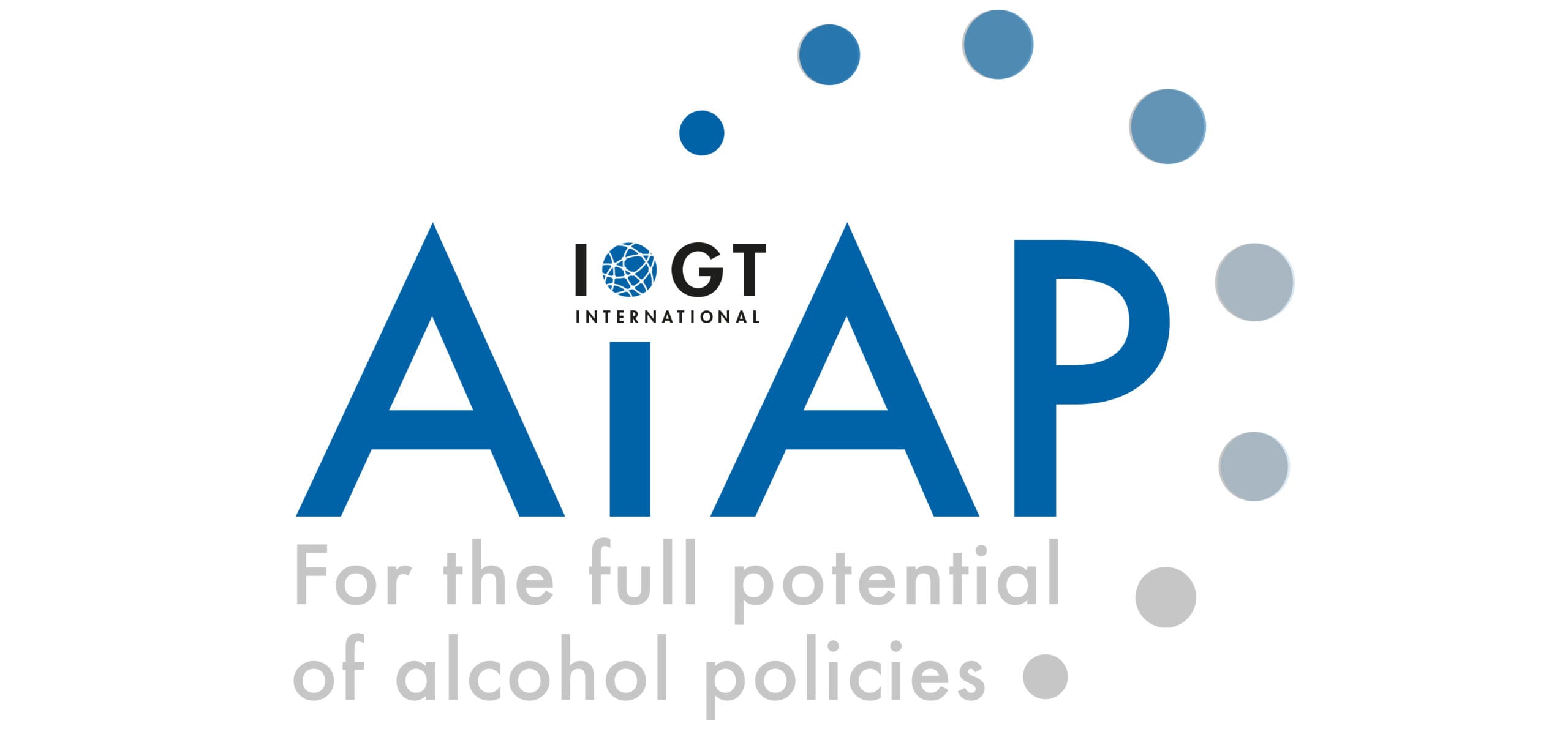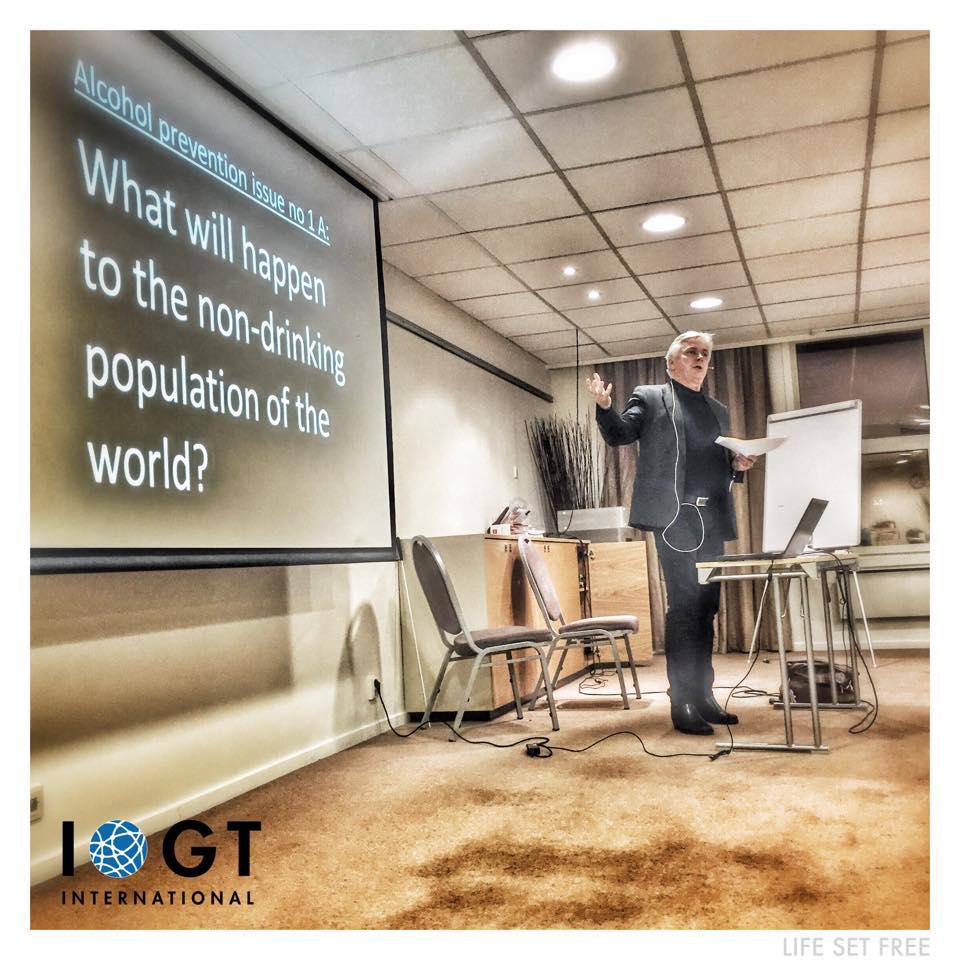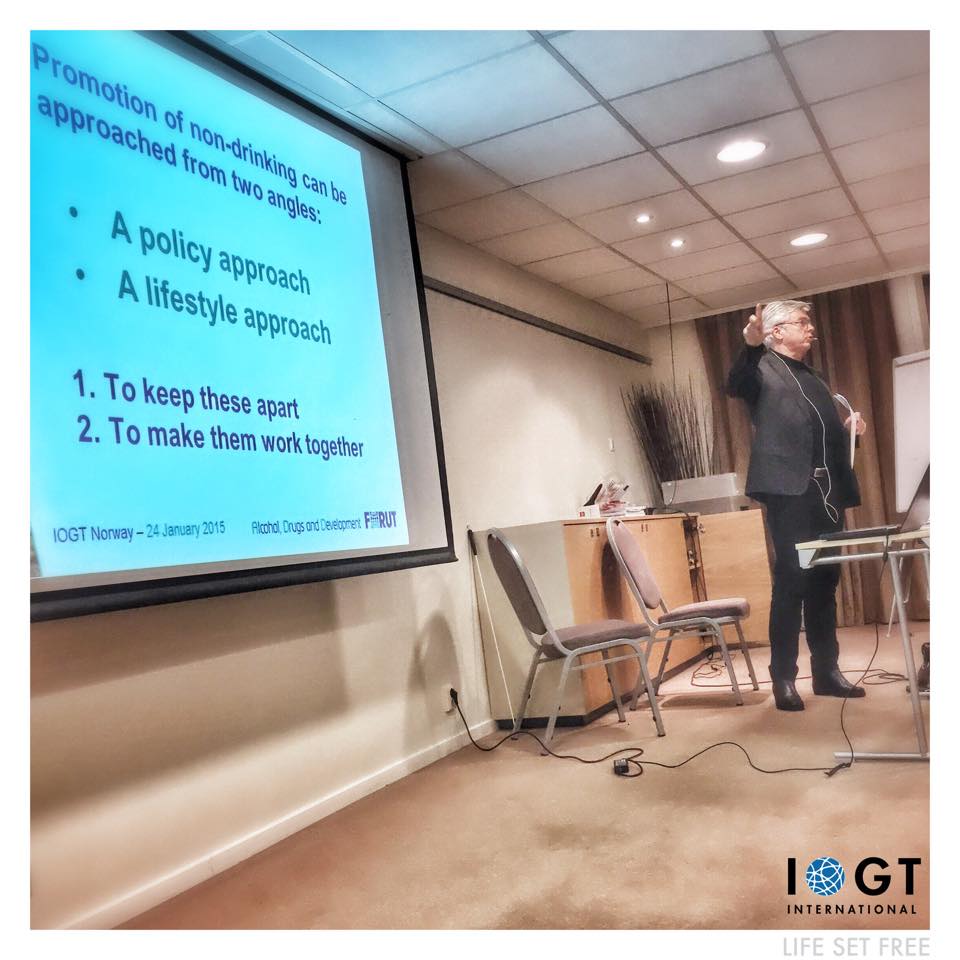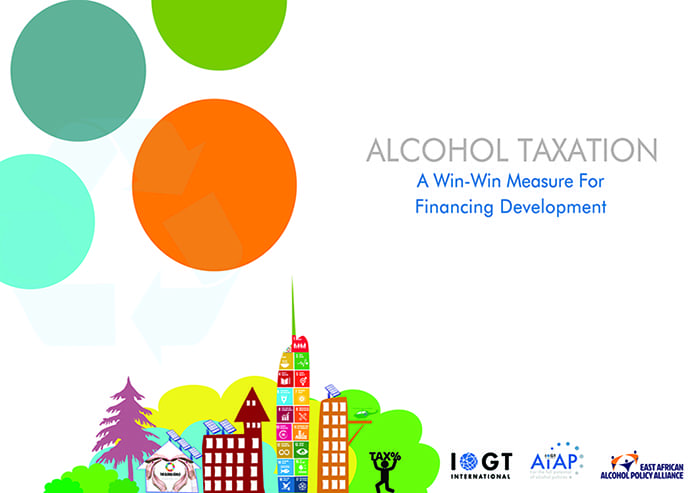In the beginning of the year, I had the chance to listen to Dag Endal, who summarised the main lessons from the IOGT Prevention conference in Oslo, Norway.
- The prevention challenge: protect those who choose to live alcohol free
- Summarising lessons learned
Dag provided a way of making sense of the key lessons learned during the conference that resonated with me: prevention of alcohol harm has a policy and a lifestyle dimension. Both dimensions need to be kept apart; but they need to work together strategically.
We conduct our political work starting from that strategic premise.
And 2015 has been a successful year for political work. Six milestones for IOGT International’s political work show that our work bears fruit.
UNDP & WHO Joint Program
We commenced our collaboration with the United Nations Development Program (UNDP) and the World Health Organisation (WHO) in their joint program entitled “Strengthening and integrating national policies and programmes addressing gender-based violence, harmful use of alcohol and infectious diseases.”
We had been involved in that program already since 2013, when our (then Vice President) President Kristina was invited to participate in a workshop in Chisinau, Moldova and gave a presentation about alcohol and gender-based violence.
In the recent years we had developed a more systematic way (again) of working with WHO – both on global and regional levels – and with UNDP in New York and Geneva.
Our members from Norway and Sweden are also strategically involved in the joint program (we hope to bring on board more Member Organizations from the global south) and so this is a milestone because we are able to support UN agencies in systematically addressing alcohol harm in an integrated and inter sectorial approach. Our network and expertise are valuable and impactful.
Side Event at CSW59
Alcohol is a major risk factor in the global epidemic that is gender-based violence. Alcohol policy measures need to be part of the policy toolbox in order to prevent and eradicate violence against women.
But translating the evidence into policy action is a different story. And so, we consider the opportunity to arrange a high-level side event at the 59th Session of the UN Commission on the Status of Women a real milestone in our work with the Women’s Rights community.
The side event meeting room was crowded at the UN headquarters and afterwards interest in our work, our expertise, and the need for more evidence has been increasing: decision-makers are starting to pay attention and opinion leaders want to learn from us how they can address the issue of alcohol in their work for gender equality.
For us, the Side Event, organised together with the Permanent Representation to the UN of Bosnia and Herzegovina and with our Member Organisation CEM, was part of our strategic political work – it was crystallising moment to show the bulk of evidence there is now, and it was a launching platform for stronger advocacy efforts going forward. Together with our Member Organizations we followed up this fall with our 16 Days of Activism initiatives.
Chairing Vienna NGO Committee on Drugs
Our Executive Director Esbjörn was able to get elected to the prestigious office of Chair of VNGOC.
The Vienna NGO Committee on Drugs (VNGOC) membership elected Esbjörn, who had already served as acting chair following Mr. Michel Perron, to be chair – in effect expressing their support for his leadership and heart-driven work to give civil society a voice in the political processes to prevent and reduce harm from narcotic drugs.
Esbjörn is also the Chair of the Civil Society Task Force that coordinates and ensures civil society input into the preparatory processes towards the UN General Assembly Special Session on Drugs.
This is a milestone for our political work because it shows the level of expertise that people from our movement hold and it shows the appreciation there is for our know-how and leadership. Esbjörn, and with him a host of other IOGT International members play a vital role in the protection of children from drug harm.
Report launch
In his most recent blog post, Pubudu wrote about the unfinished business of securing a place for alcohol taxation as a topic on the agenda when discussing financing for development.
In this political process we were not able to write a success story but we at least reached a milestone on the way. We wrote a report together with our friends and colleagues at the East African Alcohol Policy Alliance (EAAPA): “Alcohol taxation – A win-win measure for financing development“ – to compile all the evidence there is and show the potential there is in using alcohol taxation as tool to generate funding for public health and development.
Setting the agenda on alcohol and trade
Almost two years ago – how time flies – I wrote a blog post with the title: “Costs Of Alcohol Harm Dwarf TTIP Benefits“. In the blog post I compare the projected economic “benefits” of TTIP according to the European Commission with the costs that alcohol harm burdens Europe with annually.
Ever since then, we can see that more and more opinion leaders within civil society take up this perspective. Our advocacy work concerning alcohol and trade has been a milestone. We provide thought leadership in this complex issue – not only concerning the Transatlantic Trade and Investment Partnership but also the Trans-Pacific Partnership Agreement (TPPA).
In the beginning of 2015, we were part of a coalition of health organizations that commissioned an LSE study about the health impact of TTIP. Kristina wrote a good summary of the study. And this fall, we were honoured to be founding members of the Health and Trade Network – a visionary new organization with the mission of sharing news and information about the impact on health from trade agreements around the world.
AiAP FTW
 What do these milestones have in common? They are all underpinned by the premise I mentioned above: that prevention of alcohol harm has a policy and a lifestyle dimension. Both dimensions need to be kept apart; but they need to work together strategically. In the policy dimension, we work from the innovative approach which we call AiAP – Alcohol in Alcohol Policies. As you can see from some of the milestones, we have been impactful in our political work in mainstreaming alcohol policy issues into other policy areas, such as Women’s rights and gender equality, trade, sustainable development.
What do these milestones have in common? They are all underpinned by the premise I mentioned above: that prevention of alcohol harm has a policy and a lifestyle dimension. Both dimensions need to be kept apart; but they need to work together strategically. In the policy dimension, we work from the innovative approach which we call AiAP – Alcohol in Alcohol Policies. As you can see from some of the milestones, we have been impactful in our political work in mainstreaming alcohol policy issues into other policy areas, such as Women’s rights and gender equality, trade, sustainable development.
Alcohol is a tremendous obstacle to development and therefore it is important that UNDP is exploring ways of tackling alcohol harm in its mission to foster development.
Alcohol is a major risk factor for violence against women and therefore it is important that UN Women is exploring ways of reducing alcohol-related violence to sustainably prevent gender-based violence.
In this spirit, AiAP is another of the milestones of our political work in 2015.



